System 7 Interview – Quarter-Century Techno
System 7 have been releasing a unique blend of techno since 1990, and have therefore seen all sorts of music technologies come and go. MusicTech catches up with Steve Hillage to hear some incredible advice on making it in music today and what still drives the band after 25 years at the cutting edge of […]

System 7 have been releasing a unique blend of techno since 1990, and have therefore seen all sorts of music technologies come and go. MusicTech catches up with Steve Hillage to hear some incredible advice on making it in music today and what still drives the band after 25 years at the cutting edge of studio production and live dance…
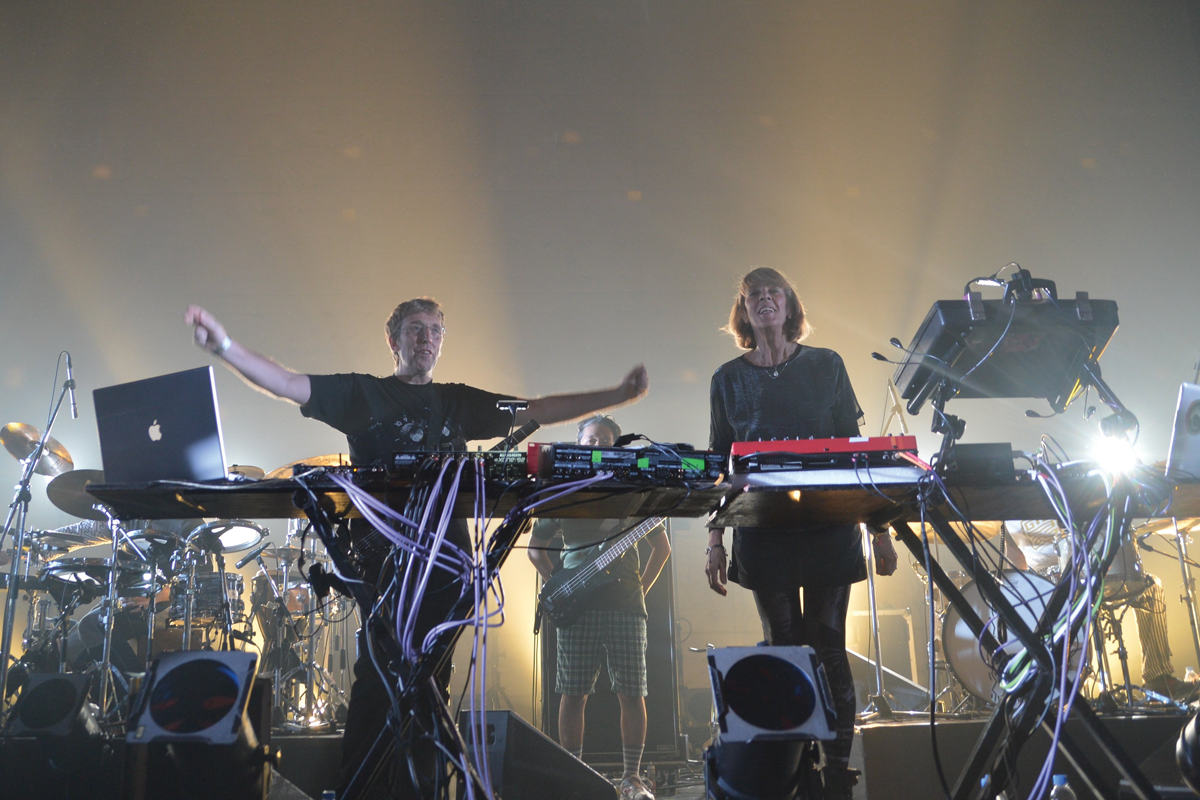
Steve Hillage and Miquette Giraudy are the core of System 7, one of the most intriguing dance acts for a huge variety of reasons. Firstly, the band has been in existance for 25 years, something that can’t be said of most acts, let alone those within the fast-paced world of dance music.
Secondly, they are one of the few bands who dabble in both ambient and techno – to the point where they will not only blend the two seamlessly within System 7 tracks, but also release more chilled tunes under the Mirror System moniker.
Thirdly, they have done this all without the regular backing of major labels, but still managed to carve out both a living and reputation from their quarter of a century at the coal face of beats (and non-beats), putting in countless headline appearances at festivals across the world and putting out almost as many releases.
To add to that – as if we need to – both Hillage and Giraudy were members of the influential band Gong, who formed way back in the 60s, and whose prog sound is very much back in vogue today. So there’s a lot to talk about and many years to cover. It’s a good job, then, that Steve Hillage is in animated form…
MusicTech: You are reportedly named System 7 after the Apple Mac operating system of the time you formed. You could have been El Capitan, or Snow Leopard… discuss!
Steve Hillage: To be quite honest, we had the name System 7 before Apple gave that moniker to its version 7 OS. Seven is our special number (as you can see on the cover of my record Motivation Radio, for example).
We were combining that with the French slang phrase ‘Systeme D’, which means something like improvising or living on your wits. But when we heard that Apple was planning to deploy the phrase ‘System 7’, we were doubly happy about using that name. We checked as to whether it was an Apple-registered trademark and it was not – it was just a kind of nickname that they were using.
We did have a problem with the name for a few years in the USA. It was nothing to do with Apple, although some people still persist with the idea that it was. The problem was that there was another band called System Seven, a rock band from Oregon. Happily, they weren’t around for too long.
MT: You’ve been active in music since the 70s – what has the most dramatic tech/studio change been in that time and why?
SH: Since the 70s, the big story in recording has been the general move away from tape. Some people still like to use multitrack tape at certain stages in an album recording, especially for tracking with live drums, as it gives a unique natural compression and colour, but even then the results are often subsequently transferred to Pro Tools for editing and mixing.
Few albums these days employ analogue tape right through the complete process. But the transfer to hard disk recording was a somewhat gradual process, following a bit like a cycle of Moore’s Law. The single big dramatic overnight change must have been the arrival of MIDI in the early 80s.
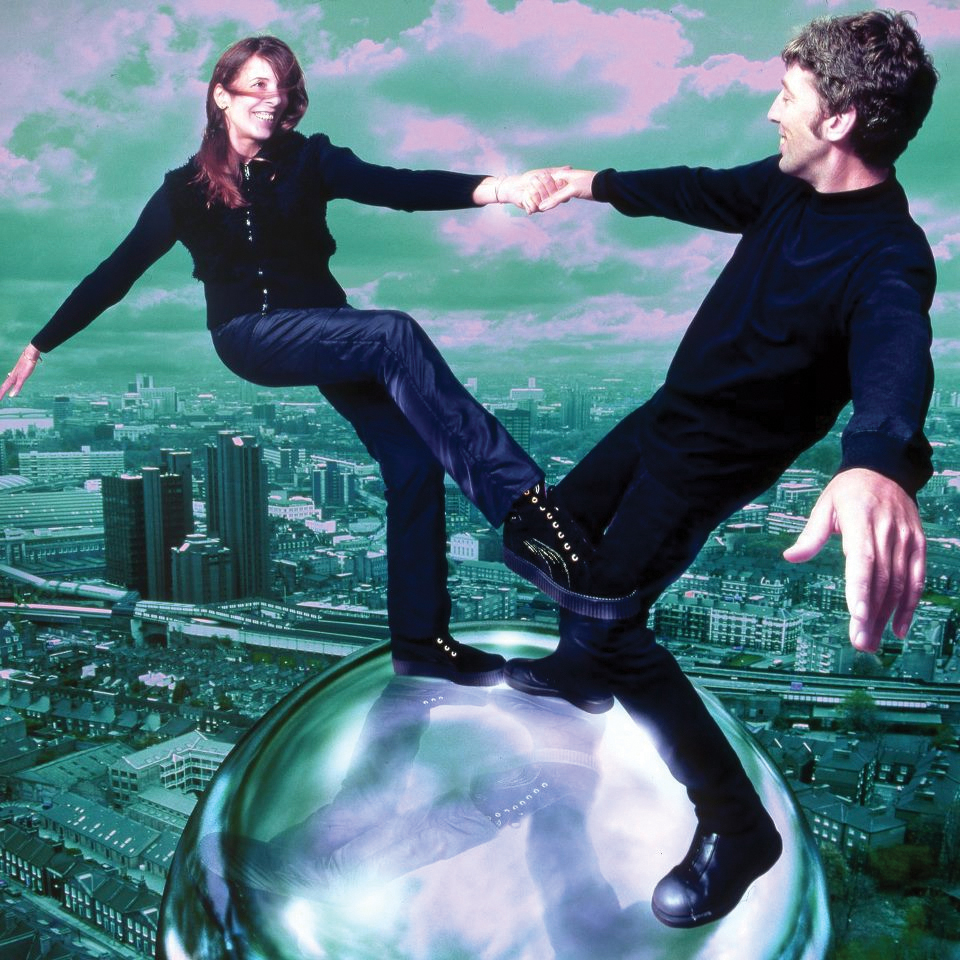
MT: What has your philosophy or approach been when it comes to music production?
SH: I often refer to a quote from Jimi Hendrix, who was speaking to Daevid Allen some time in late 1966 (Soft Machine and Hendrix shared the same management company).
He said: “Stay with your thing, man!” Well, I guess I’ve stayed with my thing over the years, and as my thing has evolved and progressed I’ve gone along with the flow. All in all, it’s worked out pretty good.
MT: Four decades in music making – and three at the cutting edge of dance music – is of course a long time. How do you manage to stay so enthusiastic and energised?
SH: I still get excited when I hear something great or get a good new musical idea. People are often proposing interesting new projects to me and I love collaborations, interaction and learning new techniques and stuff.
I still have a hunger to get better at what I do. I guess if I lose this hunger then it might be time to reconsider things, but for the moment it’s all systems go!
Studio Techno
MT: Tell us a little about your studio and the main gear in it…
SH: To give you the full history would be over-long, but suffice it to say I’ve arrived at Pro Tools HD as my main tool, with a side order of Logic and Ableton. Miquette, my partner, is a confirmed Logic user, and we hook our two rigs up with MTC sync. I first started using Sound Tools – the precursor of Pro Tools – for editing on the first System 7 album in 1990. I then progressed to Logic Audio TDM, and then moved to full multitrack Pro Tools around 2000.
Compared to other systems, Pro Tools is not so easy for starting tracks, but it’s great for finishing things! If you want, you can also go all the way right through to the mastering process, although I prefer working with a mastering engineer as it’s good to have another set of trained ears come in at the final stage.
I’m due for an upgrade for my big studio Mac and Pro Tools rig, although I’m a bit nervous of those new Power Macs in the round black boxes, as the Pro Tools cards will have to be in an external chassis.
I had bad experiences with the Magma chassis in the 90s, so it scares me a bit. For listening, I still use my trusty KRK 9000Bs and a C Audio amp controlled by the very good (and unfortunately named) Mackie Big Knob unit. I downsized my recording console to a 16-channel Mackie Onyx – it’s really excellent.

MT: You mix guitars with synths in on your techno productions. Tell us a little about what you use…
SH: I think my love for my Steinberger GL2T guitar is quite well known. I still get a few die-hards berating me for getting rid of my Strat – but to be totally honest I think it was a great decision, as it encouraged me to see my guitar playing in a new way and opened up new creative doors for me, which has kept me fresh to this day.
My main guitar processor is the Line 6 Pod XT Pro rack module. In the studio, I connect this direct to Pro Tools via AES/EBU digital. I’m thinking of upgrading to a newer top-of-the range Line 6 unit in the next year or so – there are a couple to choose from. For synths, I use mostly soft synth plug-ins like Native Instruments, Arturia and the Access Virus Indigo TDM. Miquette’s pride of place is still her 1974 EMS Synthi A.
It’s a great live instrument. We don’t sequence it, but often use it as a sound generator for things we record to audio and later edit up and loop. Her latest love is the iPad, with Animoog and other soft synth apps.
The great thing for Miquette is the expressiveness of the Animoog – which reminds her also of her original EMS sequencer plastic keyboard from the 70s – she feels she’s come round full circle!
She’s now got the Animoog iPad keyboard to control other soft synth plug-ins in Logic – such as the new Serum – and also her Nord Lead rack unit. Miquette is very happy with her rig at the moment.
MT: Tell us a little about your outboard hardware and software…
SH: We don’t use much physical outboard, as for the last 12 years virtually all our mixes have been made ‘in the box’. The favourites for myself and Miquette are definitely the SoundToys family of effect plug-ins. I use them in TDM for Pro Tools and she uses them native with Logic. EchoBoy is our dream delay unit.
I also use Speed a lot as my timestretcher in AudioSuite – definitely the best one I know, and I’ve tried quite a lot of others. I also like Pro Tools Reverb One for reverb and McDSP G console for EQ. I use a whole variety of compressor plugins, but one I particularly love for some extreme compression on guitar sounds is SoundToys Decapitator.
MT: Tell us a little about how you create your signature sound in the studio?
SH: I think my sound is based on the way I blend and layer melodies and colours. I’ve just got my own feel for it, which to a certain extent goes right back to my first albums as an artist/producer in the 70s with Khan, the Steve Hillage Band and Gong. So it’s not so much a trick or a process, more of a feel thing. I just let myself go, dive into the music and go for a result that pleases me.
I generally think that if it pleases me it will please other people. But there is a strong caveat here: you can’t go on forever looking for that perfect lost sound.
That is the secret for finishing productions well: I have my own essential standard for what, to me, is a pleasing result, and a quite well developed sensor that tells me when I’ve reached that level; and once I’ve reached that level it’s probably the best it’s going to be. It’s so easy to go up your own backside when mixing tracks.
You have to remember that pure perfection is an impossibility in this material plane. As they say: ‘the best is the enemy of the good’… On a purely technical level, like many producers, I tend to use high-pass and low-pass filters a lot. I’m pretty fanatical about timing and groove interaction. I automate EQs and effects quite a bit. I mix ‘in the box’ and, yes, I like to use a moderate amount of multi-band compression on the main mix buss.
Advice to the power of 7
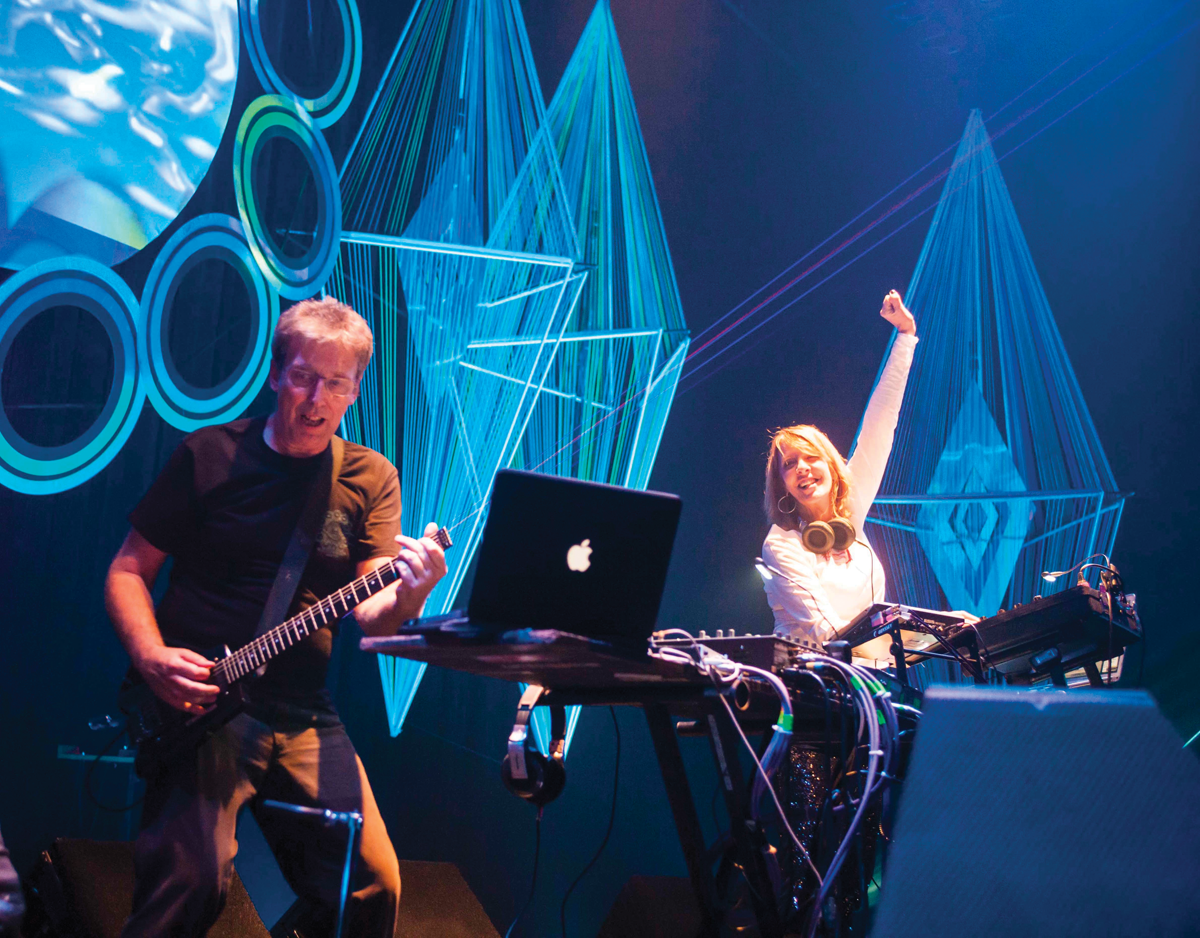
MT: Over a quarter of a century, you must have picked up some great tips for working in the studio…
SH: One thing I have been privileged to have is the experience as an artist of being produced by, or co-producing with, some illustrious producers.
The experience of working with Todd Rundgren, Malcolm Cecil and Nick Mason (of Pink Floyd) gave me invaluable insights that have deeply enriched my life as a music producer, both for my own music and for the other artists I have myself produced. It’s not just a question of music technology, knobs, faders, effects and plug-ins.
There is a whole psychology of music making and a whole universe of a developed musical imagination. I am often able to imagine complete musical mixes and productions in my mind, and my work in the studio is often based on recapturing and concretising what I have previously imagined. But this is also where psychology comes into play, as at the same time you should never creatively close yourself off to happy accidents, odd discoveries, and a bit of open exploration.
As I said before, providing you can retain the hunger to keep learning, you should be able to find a happy blend between these various aspects.
MT: What about the current state of the music industry – you’ve seen some changes there, right?
SH: Obviously now is a turbulent time in the music industry. I would advise following a few little things… Try, if at all possible, to retain ownership of the rights to your music – don’t give them away lock, stock and barrel to a record company if that can, in any way, be avoided.
Learn how to read a royalty statement so you can correct the errors that they often make (almost always in their favour!). Learn as much as you can about publishing, performing rights and so-called neighbouring rights.
I’ve had various publishing agreements with publishing companies for 40 years and it’s definitely been beneficial for me, but you have to stay on top of it!
Try to resist any temptation to give your music away for nothing in exchange for so-called ‘exposure’ – you risk devaluing the very core of what you produce creatively.
A System for Everyone?
MT: Everyone can now make music, given the technology around. Discuss!
SH: I like the principle that everyone can have access to music making and being able to get other people to hear what they do via various internet channels.
But I’m not sure that everyone is necessarily cut out for making music for a living 24/7/365. That requires a special amount of self-belief and determination – in the end, it’s a profession and should be seen as such.
One of the dangers I see now with the flood of music being released and the proliferation of free access and free downloading is that when professional musicians complain of their income being eroded they are often reviled as ‘greedy’ and told they should be doing a second job to pay the rent.
I don’t think it’s right that the profession of being a full-time music creator should be demeaned or devalued. In the end, that will just discourage more and more people from going all the way with their music careers. Music is at risk of being dumbed down, and there would be less really good new top-quality creative music around.”
System 7 – Live Tech and Techno
MT: Tell us a little about what you want to achieve playing live, and a lot on how you do it technically…
SH: “Our aim right from the start with System 7 live in 1990 was to combine the DJ experience with our specialised live playing and unique palette of sounds.
So now, with 25 years of experience, I think we’ve got it pretty down! We’ve now got a large body of material and we can produce killer sets for chill-out, techno and psytrance events and every shade in between. And it always sounds like us because System 7 and Mirror System (our more down-tempo project) is who we are!
The main rhythm tracks are generated on Ableton Live, which gives me a lot of scope to vary or extend the set based on our interaction with the crowd.
My guitar is processed through my Pod XT Pro unit, like in the studio. Miquette uses virtually the same rig live as in the studio. The amount of equipment we need is vastly cut down from what it was, due to more use of soft synth plug-ins and the iPad, which is great on a practical level.
We still carry a lot of equipment live compared to most dance music acts, but we’ve got air travel with our equipment down to a fine art! All our sound is mixed through a DJ mixer, either a Pioneer DJM-900, which we own, or an Allen & Heath Xone:92, which has a better bottom-end sound, but less useful effects.
The four stereo DJ channels we use are track 1: Miquette’s synths; tracks 2 & 3: Ableton rhythm tracks; track 4: Steve’s guitar. I’ve also developed a great trick with the DJ crossfader on my guitar track, doing some neo-scratching with guitar feedback!”
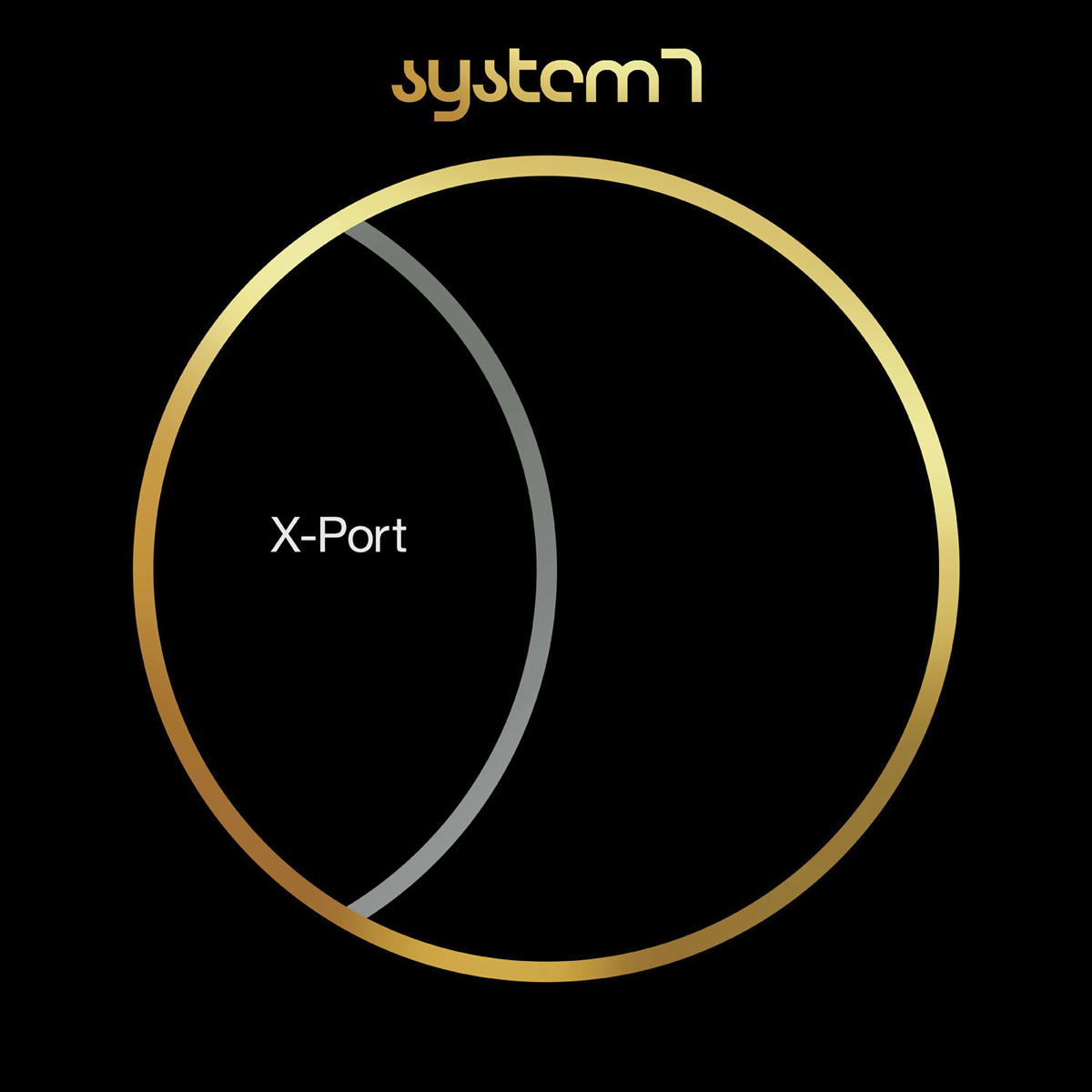
MT: What have you got coming up in terms of releases and live shows?
SH: We are releasing two albums simultaneously now: an album by System 7 called X-Port and an album by our down-tempo sister project Mirror System, called N-Port.
We call the dual-release project N-Port/X-Port, and we’ve developed some code words for differentiation. For Mirror System – N-Port – it’s N-Halation, N-Spiration and N-Trospection. For System 7 – X-Port – it’s X-Halation, X-Citation and X-Troversion. Some of the tracks on each album are collaborations with Alex Paterson (of The Orb), Jam El Mar (of Jam And Spoon), James Monro, Perfect Stranger and Japanese band Rovo (with whom we made an excellent project in 2013/14, called Phoenix Rising).
The simultaneous release of these two full albums also celebrates 21 years since the release of our somewhat groundbreaking twin System 7 release of the Point 3 Fire album, and Water album in October 1994.
I think these two albums are really strong releases that work through the whole spectrum of what we do as System 7 and Mirror System, and hopefully they’ll have the same longevity as the Fire and Water albums, which are still selling after 21 years.
After a great summer of festivals, we will be playing a bunch of UK shows to promote this release in October and November, and then going to Japan for a tour in December.
The UK shows include the Jazz Café in London on October 28 and a return of the legendary club event Megadog in Manchester on November 21. For most of these shows, we will be playing two sets: an earlier Mirror System set and a later full-power System 7 set, to provide a full evening’s uplifting entertainment!
MT: What have you got planned for the near future?
SH: My next project, after the System 7 and Mirror System albums, is a comprehensive boxset of all my work as an artist, from my first beginnings with Arzachel and Khan right through to the first System 7 album of 1991. I’m excited about this project, which will also feature some rarities and some unreleased material.
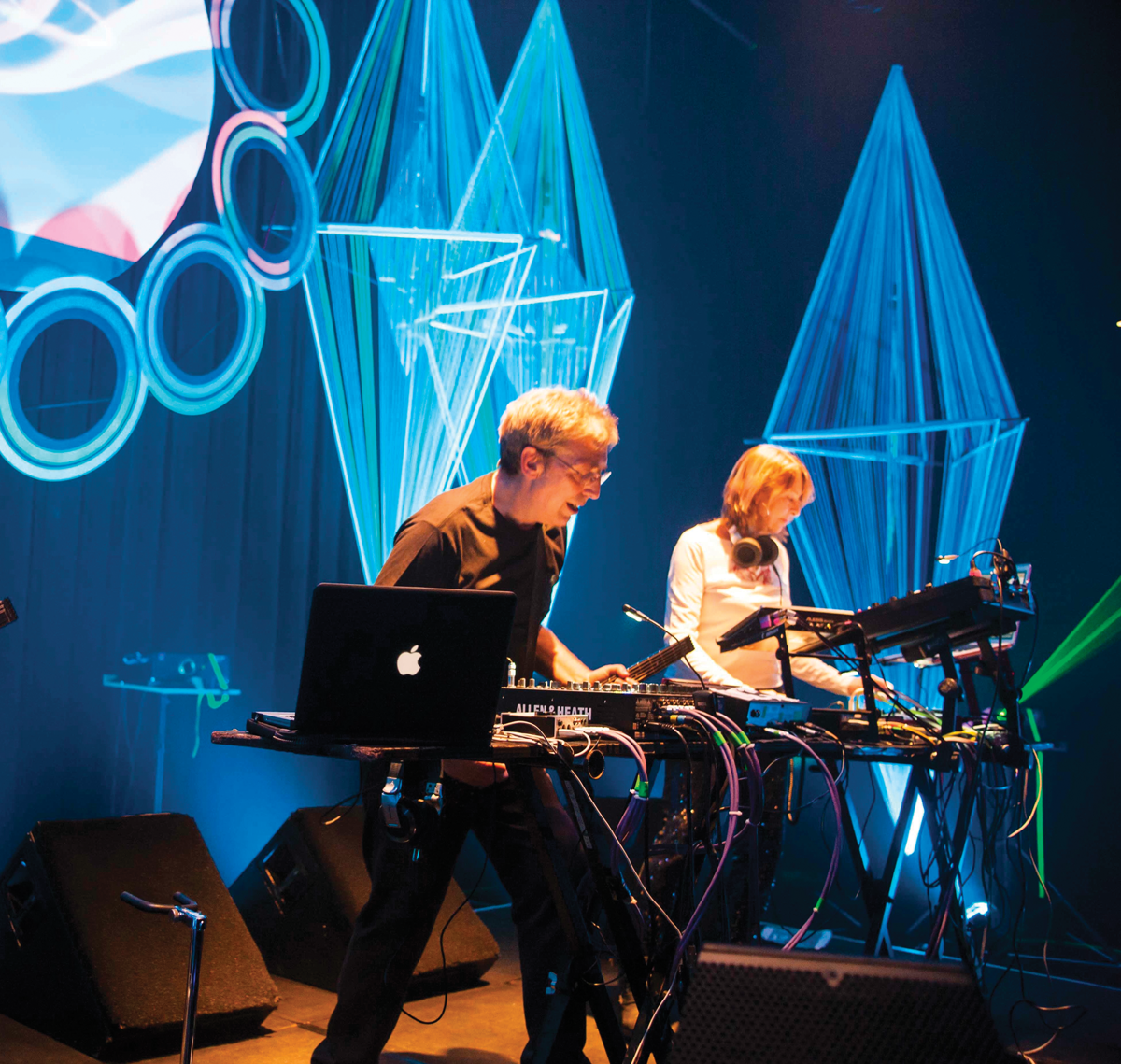
MT: Finally, what is the future of music production in 100 words?!
SH: I think music production is technically on a bit of a plateau at the moment. I guess we’re waiting for the next new technical surprise. Part of it is limited by the end consumer formats. I wonder if it’s worth the extra overheads of working in 96k or 192k, when the standard CD format is still 44.1k. I am interested, however, in progressing beyond 24-bit.
I’m waiting for download bandwidths to reach the level where everything can be produced in full-bit-depth WAVs, with no need for the dreaded MP3s or for FLACs (which I find irksome).
I’m also somewhat sceptical about doing 5.1 surround mixes, because so few people have got proper rigs to play them on. If I make some music, I want as many people as possible to hear it and experience it. Music is an art, but it’s also a communication medium.